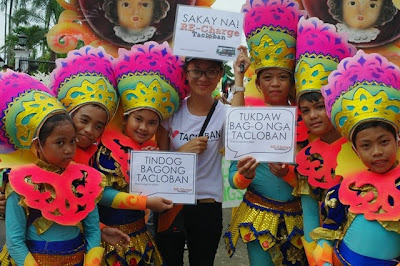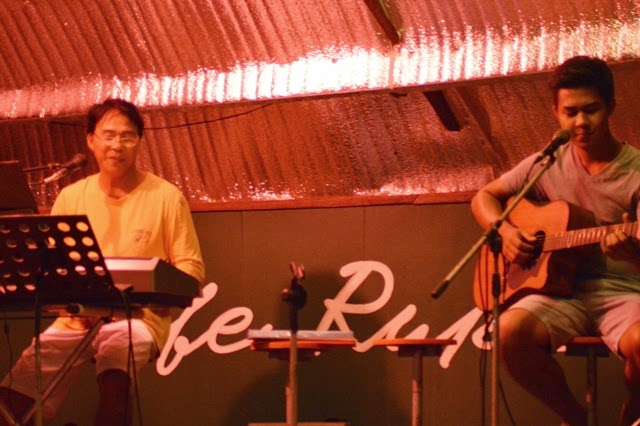A tale of a human trafficking survivor in Samar
Lyn, not her real name, 14 years old, one of the human trafficking survivors in Samar.
Marabut, Western Samar – A year after the horrible experience happened to some elementary graduate pupils, when they were able to be rescued by the authorities in Tacloban City from their alleged human traffickers who were a member of “Babalam Kevalam Foundation”, one of the survivors of the crime decided to speak up to tell her story of survival against those who took advantage in their situation.
She is Lyn, not her real name, 14 years old and a grade 8 of Osmenia National High Schoolin Marabut Samar. She is the second child of the family. Her mother is a housewife while her father works in the mountain where he planted different root crops as a means of livelihood.
HER STORY
It was on March 2014, when we were still picking up the pieces of our lives after typhoon Yolanda and after our graduation in our elementary grade when we meet the members of a certain organization called “Babalam Kevalam” in Brgy Osmenia, Marabut Western Samar.
The group conducted a relief operation in our Brgy and stayed in the elementary school temporarily for their operations. One of the members, who identify herself as a nun, approached us while we were planting in our community garden.
She asked the five of us who, at that time we are 12-13 years old, if we wanted to study in Manila and offered scholarships. Because of our great desire to attain a formal education, all of us agreed and immediately “Babalam Kevalam” went to our parents and asked their permission to bring them to Manila.
Out of my mother’s desire for me to have a better education and the difficult situation we were facing, Babalam Kevalam got her permission. At first, my mother asked the members of the group to acquire a certification from DSWD and in the Brgy because they will be bringing five minors.Right there and then they vehemently refused and told us that it is not anymore necessary to get a certificate from them. Instead, they made our parents signed an authorization paper stating their consent and authority for transporting us.
They promised that they will send us to high school and even to college, and once we acquire our degree they will send them abroad to work with the foreigners. Because of the enticing words that they offer our parents thought that we will have a better future and that they all need to do is to grab this opportunity.
“Pumayag yung mama ko kasi sobrang hirap na hirap kami nun at ako din gusto kong makapagtapos ng pag-aaral dahil yun ang gusto ng Papa ko sakin,” Lyn said.
It was when the recruiters prohibited us not to bring cellphones or any gadgets when we will be in Manila, that we felt that there’s something wrong. Because of our growing doubt, one of my friends, Nina not her real name, secretly brought a cellphone and put it inside her bag.
When we were already in the New Bus Terminal in Tacloban City, a male passenger asked us if where we will be going. I told him that we were going to Manila with the nuns in orange at the back of the seats. The man started to ask more questions and wonder why those nuns are wearing orange clothing.
He left the bus for a while and suddenly he appeared with policemen. The authorities asked the nuns if they have acquired certificates from DSWD and Brgy since they are transporting minors. One of the nuns just presented her voter’s ID. We were immediately brought to the police station for inquiries and eventually we were brought to the women’s shelters in Tacloban City.
We stayed in the shelter for one and half month. After our counseling, we were brought to our own families in Marabut Samar. After the incident, I saw the tarpaulin stating about Human Trafficking and it was the first time that I learned about the crime.
Because of my experience and the things that I’ve learned I warned my classmates not to talk strangers especially when they promise about sending them to school or bringing them in other places.
Today, Lyn was in grade 8. Like any other typhoon Yolanda survivors who suffered the effects brought by the storm, she remained to be one of the most vulnerable and less attended in terms of response and intervention by the government. [END]




Comments
Post a Comment